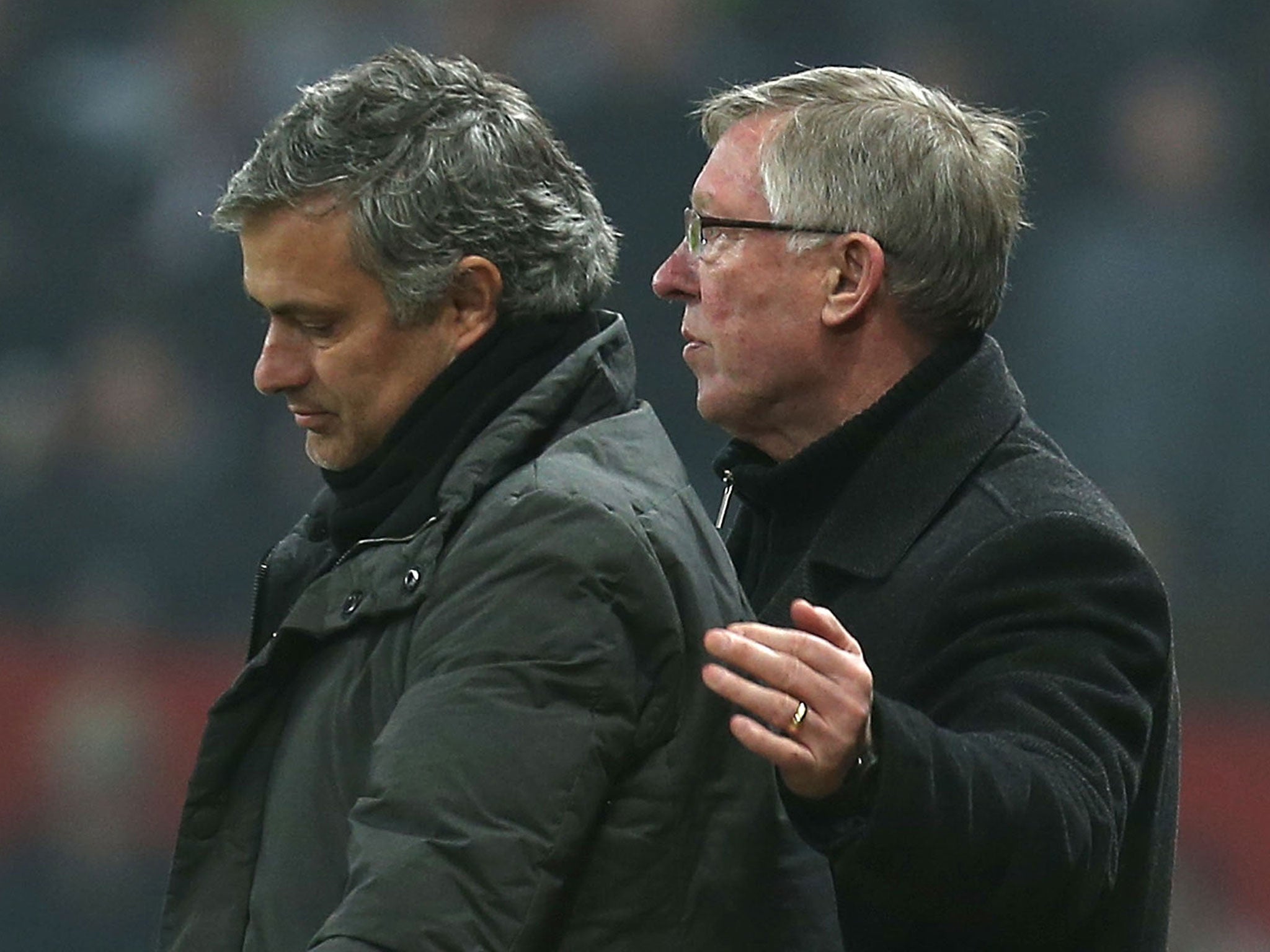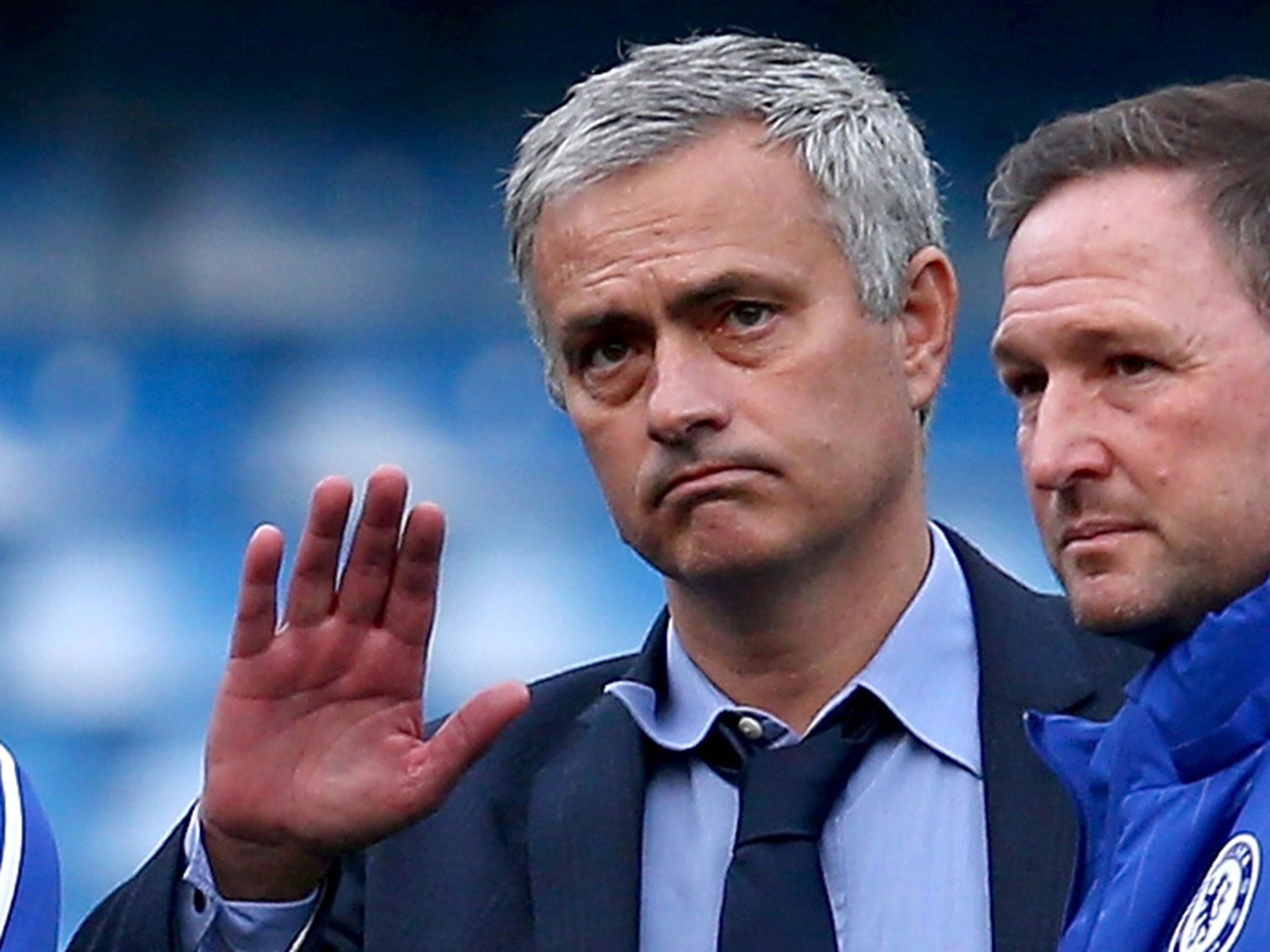Jose Mourinho should heed Sir Alex Ferguson’s lesson in drawing strength from failure
COMMENT: Mourinho is looking for gestures to shock something out of the players. Nothing is happening

Your support helps us to tell the story
From reproductive rights to climate change to Big Tech, The Independent is on the ground when the story is developing. Whether it's investigating the financials of Elon Musk's pro-Trump PAC or producing our latest documentary, 'The A Word', which shines a light on the American women fighting for reproductive rights, we know how important it is to parse out the facts from the messaging.
At such a critical moment in US history, we need reporters on the ground. Your donation allows us to keep sending journalists to speak to both sides of the story.
The Independent is trusted by Americans across the entire political spectrum. And unlike many other quality news outlets, we choose not to lock Americans out of our reporting and analysis with paywalls. We believe quality journalism should be available to everyone, paid for by those who can afford it.
Your support makes all the difference.Though there is something rich about Jose Mourinho, cherished and handsomely remunerated by BT Sport as its “ambassador”, treating the broadcaster to his “I have nothing to say” interview on Saturday afternoon, Sir Alex Ferguson will understand his determination to close the post-match conversation down. “It’s like getting a wee tear in your jacket. If you don’t get that tear sewn up immediately it will only get worse,” he once said.
But much though Ferguson came to detest the press “jackals” in the end, it is part of the fundamental difference between him and Mourinho that he always knew the supreme value of bad publicity. One of his favoured lines with his players on the day after a bad defeat was: “Are we enjoying the headlines this morning?” It was part of an emotional arc which would begin with him withdrawing himself from the players so completely that they would remark on his black mood and studiously avoid him in the staff canteen, proceed with him taking them back to basics in the week’s training, and conclude with him telling them all the good things he wanted to say about them at the next game’s post-match press conference.
We experienced a form of that arc, too. There could be dog’s abuse for his inquisitors in the post-match half-hour, but Ferguson would generally wear a sunny demeanour when he arrived to talk at 9am the following Friday. The clouds always seemed to have cleared. Even the aftermath of the 6-1 defeat to Manchester City, four years ago, followed that pattern.
The point is that while Mourinho, a man who has known only success in a gilded football life, can only call upon the chaos theory when the going gets tough – of which Saturday’s spectacle after the 3-1 defeat to Liverpool was the latest deeply embarrassing manifestation – Ferguson knew failure and weakness, inside and out, and drew upon what they taught him. He was damaged and defined by Rangers’ decision to offload him to Falkirk in 1969, which is why he was as interested in others’ problems and worries as by their successes – and developed a range of devices to deal with them. “[Eric] Cantona was a very underrated man and an interesting man. He needed the encouragement that he was at the right club,” Ferguson said recently. No coincidence that an entire section of his new book, Leading, co-written with the venture capitalist Michael Moritz, is entitled “Failing”. The fragility of players’ confidence features prominently in that section.
Compare that philosophy with the very compelling testimony on Mourinho provided by Alvaro Arbeloa, in Pete Jenson’s excellent interview with the player on these pages on Saturday. The interview revealed that Mourinho just did not possess the emotional and intellectual range to pick players up off the floor when, by a combination of ego and diminished confidence, they failed to give of their best as Real Madrid’s 2012-13 La Liga title defence began catastrophically. Arbeloa was a member of the Mourinho squad which heard him bizarrely conceding the title after a draw with Espanyol on 16 December. “I spoke with [Mourinho] a lot and Jose is a coach who demands a lot and he doesn’t know any other way than to be that demanding,” Arbeloa told Jenson. “He would say, ‘I’m not able to say, “How’s it going? What’s happening? How do you feel?” to a player who isn’t trying.’ He can’t deal with the situation that the team is not functioning. He didn’t take that at all well.”
The blunt Mourinho managerial instruments we saw back then conform to what he has described as his “confrontational leadership” strategy, since arriving back in London. That’s to say, hammering players like holy hell in public to try to get something out of them. “We have the graphics in our own dressing room,” he said of his Real players after a 1-0 defeat at Sevilla in September 2012. “My problem is that my team at this moment are not here.” That provoked senior players Iker Casillas, Sergio Ramos and Gonzalo Higuain to ask for a meeting with Mourinho. He viewed their very request as an act of civil war.
The past two months have conformed to the same strategy – Mourinho looking for the grand gestures to shock something out of the players; humiliating Nemanja Matic on a training ground; randomly dropping individuals; seemingly treating the club doctor Eva Carneiro so despicably by castigating her publicly that Chelsea face the indignity of an employment tribunal; proclaiming himself, before the disastrous Champions League trip to Porto, to be “mentally a serial champion” while questioning whether his squad were. The diversionary gambits – and Saturday’s “I have nothing to say” warrants infinitely more ridicule than Rafa Benitez’s “facts” ever did, but no prizes for guessing whether it actually will – are just one more of the usual levers he is frantically pulling, only to find that nothing is happening.

In Madrid, there was no better manifestation of how Mourinho pounds relationships to death than the iconic image of himself and Cristiano Ronaldo at the mouth of the tunnel after the last game of that 2012-13 campaign, which yielded no silverware. Ronaldo cannot even bring himself to look at the man, which is hardly how he parted ways with Ferguson, who nurtured him. Mourinho left for Chelsea, where footballers who peerlessly delivered him last season’s title are – with the exception of John Terry, Gary Cahill and a few others – now looking at him, hearing what he says about them and thinking, to use a printable form, “Who the hell do you think you are?”
Mourinho would say that he, just like Ferguson, has lived failure in the raw. The decisions of Barcelona and Manchester United to overlook him in 2008 and 2013 respectively are his experiences of life on the dark side. But they belong to the man’s fabricated sense of injustice, rather than anything real and tangible. If this situation, and his reputation, is to be mended, it will take an appreciation from him that struggle, frailty and weakness belong just as much to the management challenge as power, talent and soaring self-belief.
You wouldn’t bank on it. It feels like this relationship is over. But while there is yet time, the Ferguson leadership manual would be worth an hour of Mourinho’s consideration. “A major loss or pounding can exact a heavy toll on a group of people,” Ferguson writes. “It can shake their confidence and if you aren’t careful, the consequences can linger. When you lose, particularly if you get thumped, you carry that loss around. Football is full of setbacks beyond the simple pain of defeat. It’s useless drowning in self-pity.”
Join our commenting forum
Join thought-provoking conversations, follow other Independent readers and see their replies
Comments